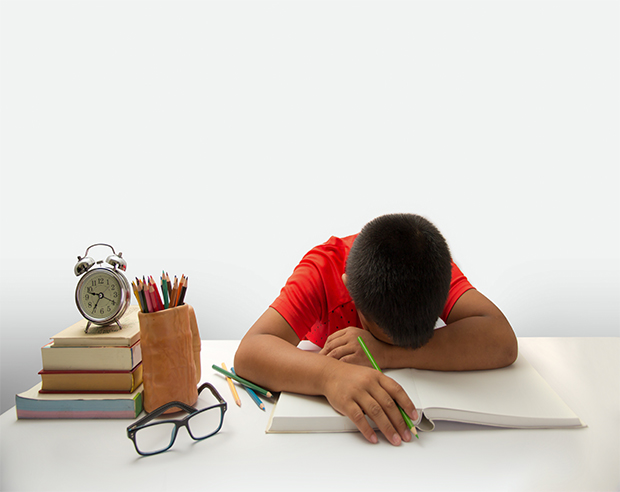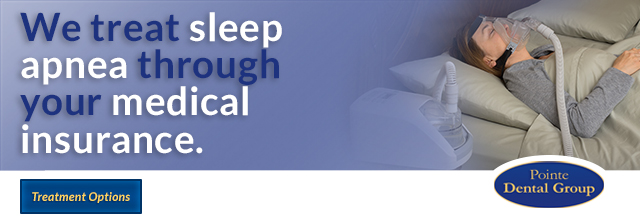 The term “sleep like a baby” is supposed to refer to a restful, restorative slumber. But like adults, not all babies and children can count on a regular, good night’s sleep. Sleep apnea is a sleep disorder that interrupts a person’s breathing while they sleep. And while it’s most common in adults, pediatric sleep apnea affects a surprising number of children.
The term “sleep like a baby” is supposed to refer to a restful, restorative slumber. But like adults, not all babies and children can count on a regular, good night’s sleep. Sleep apnea is a sleep disorder that interrupts a person’s breathing while they sleep. And while it’s most common in adults, pediatric sleep apnea affects a surprising number of children.
According to the National Sleep Foundation, obstructive sleep apnea (OSA) – the most common type of sleep apnea – affects more than 18 million adults and 2- 3% of children of all ages, even newborns. Pediatric OSA seems to run in families, and kids who have enlarged tonsils and/or adenoids (lymph nodes in the throat behind the nose) have a higher risk of developing the disorder. Other factors include childhood obesity, having a small jaw or midface or a larger-than-usual tongue, being exposed to tobacco smoke, and having less muscle tone (frequently found in children with Down syndrome, cerebral palsy, and/or neuromuscular disorders).
The good news about pediatric sleep apnea is that some children simply “grow out of it.” But there’s bad news, too. There is increasing evidence that, left untreated, pediatric sleep apnea can have detrimental effects on a child’s development. Studies have suggested that as many as 25% of children diagnosed with attention-deficit hyperactivity disorder (ADHD) may actually have symptoms of OSA, and that much of their learning difficulty and behavior problems stems from chronic interrupted sleep. Slowed physical growth, hormonal and metabolic problems, and even failure to thrive may be linked to sleep apnea, as well.
What Are the Symptoms of Pediatric Sleep Apnea?
Pediatric OSA has many of the same symptoms as adult OSA:
- Snoring, often associated with pauses, snorts, or gasps
- Heavy breathing while sleeping
- Very restless sleep
- Sleeping in unusual positions
- Daytime sleepiness
But these symptoms can also can also be present in children with OSA:
- Bedwetting (especially if a child previously stayed dry at night)
- ADHD or learning difficulties in school
The only way to get a definite diagnosis of pediatric OSA is to have the child undergo a sleep study in a laboratory. The lab technicians overseeing the study should be experienced in working with children, and the data from the study should be interpreted by a sleep medicine physician with pediatric experience.
How Can Pediatric Sleep Apnea Be Treated?
There are several treatments for pediatric sleep apnea. To find the best treatment for your child, consult your pediatrician and a sleep apnea specialist.
Adenotonsillectomy – Surgical removal of the adenoids and tonsils is the most common treatment for pediatric OSA. In uncomplicated cases, the operation results in completely eliminating the symptoms 70% to 90% percent of the time. This is typically an outpatient procedure, but some children with chronic medical conditions like obesity or severe OSA should be carefully monitored overnight following the surgery.
Continuous Positive Airway Pressure (CPAP) – This treatment involves pressurized air generated by a bedside machine and fed to the patient through a mask and is commonly prescribed for adults. But it can also be effective for children with OSA. The effectiveness of the CPAP treatment should be monitored and adjusted as the child grows or if they undergo a significant weight change.
Oral Appliances – Oral appliances, can be effective in treating pediatric OSA, especially in adolescents whose facial bones have (for the most part) stopped growing. Note that once a child is diagnosed with sleep apnea, oral appliances used in it its treatment may be covered by medical insurance.
Weight Management – Proper nutrition, coupled with regular exercise, is an effective treatment for both children and adults with OSA.
Medication – Medication for allergies, asthma, and acid reflux can be helpful to patients with pediatric OSA if they also suffer from these conditions. These should be prescribed and monitored by medical professional.
Concerned About Sleep Apnea?
Pointe Dental Group can provide you with a complete examination, answer your questions, and discuss your treatment options. Schedule an appointment with us today! New patients can receive FREE comprehensive exam and consultation, plus a full panoramic x-ray with a paid cleaning procedure (a $200 value)!
Grosse Pointe Farms: (313) 881-2480
Shelby Township: (586) 803-8300
